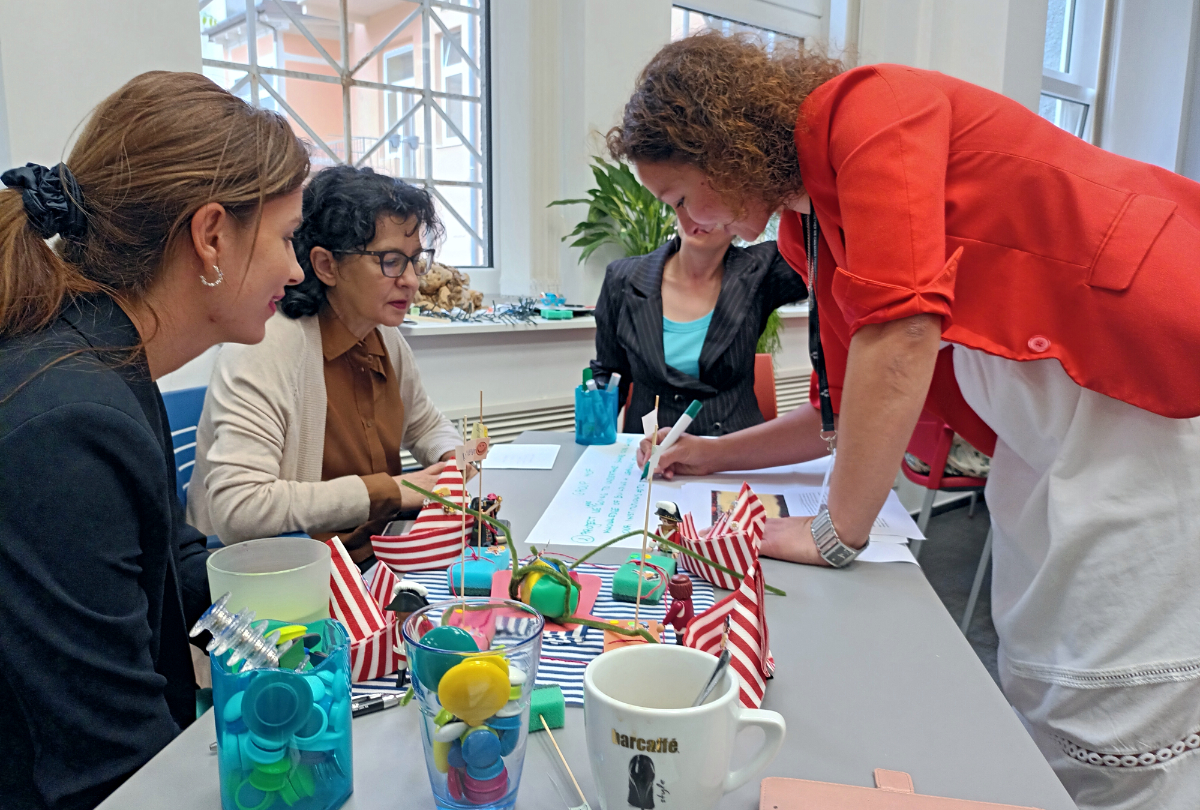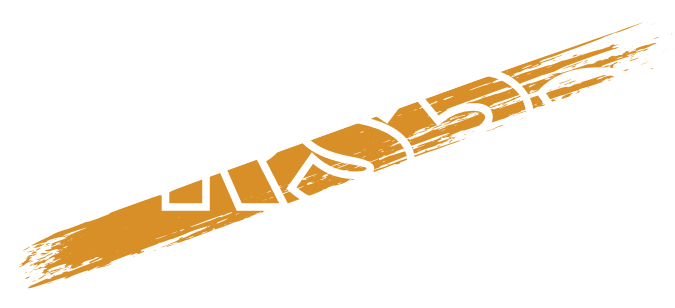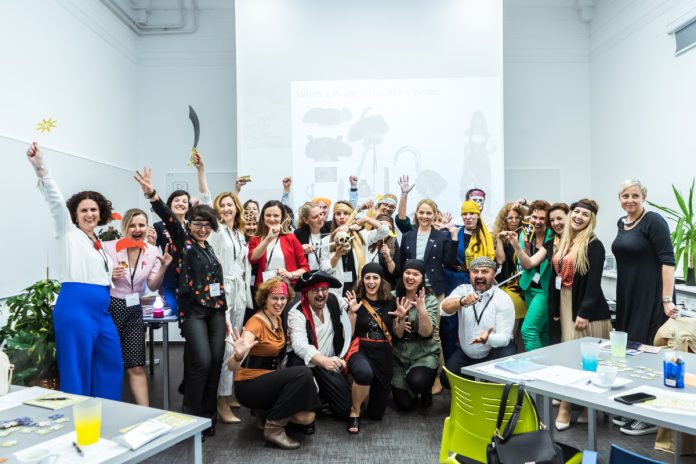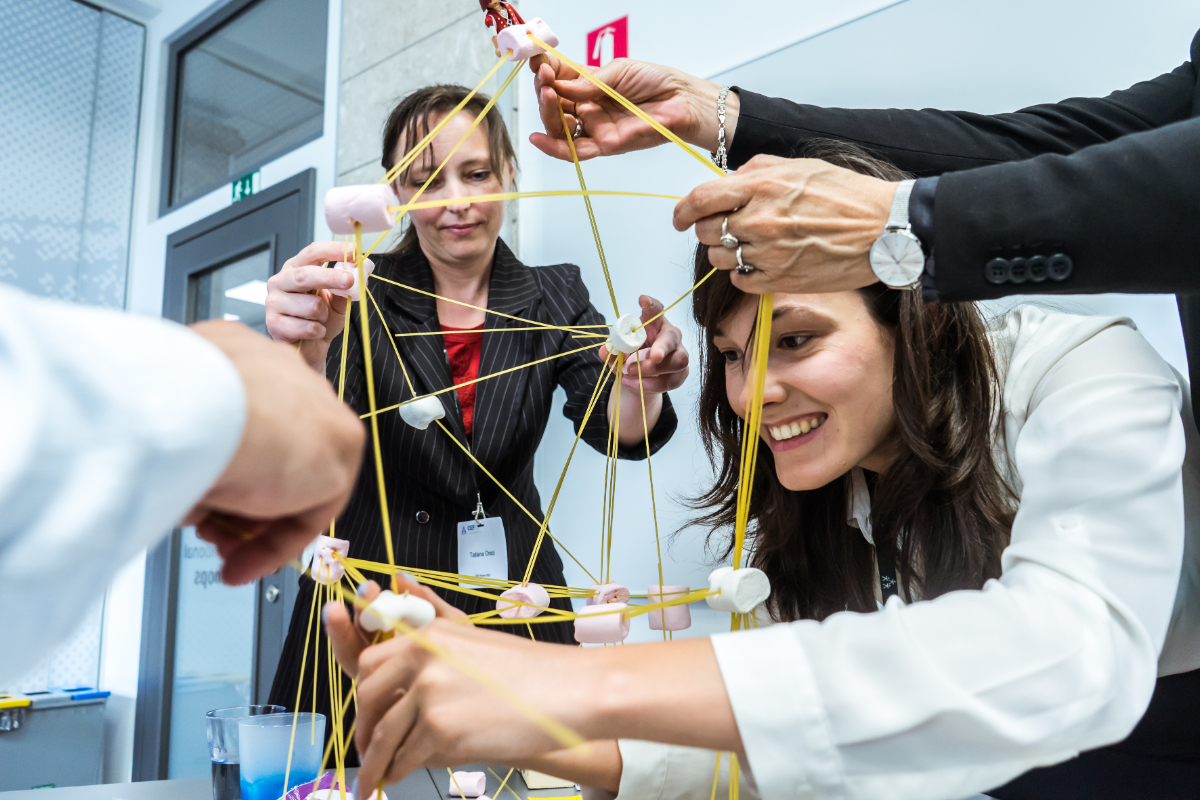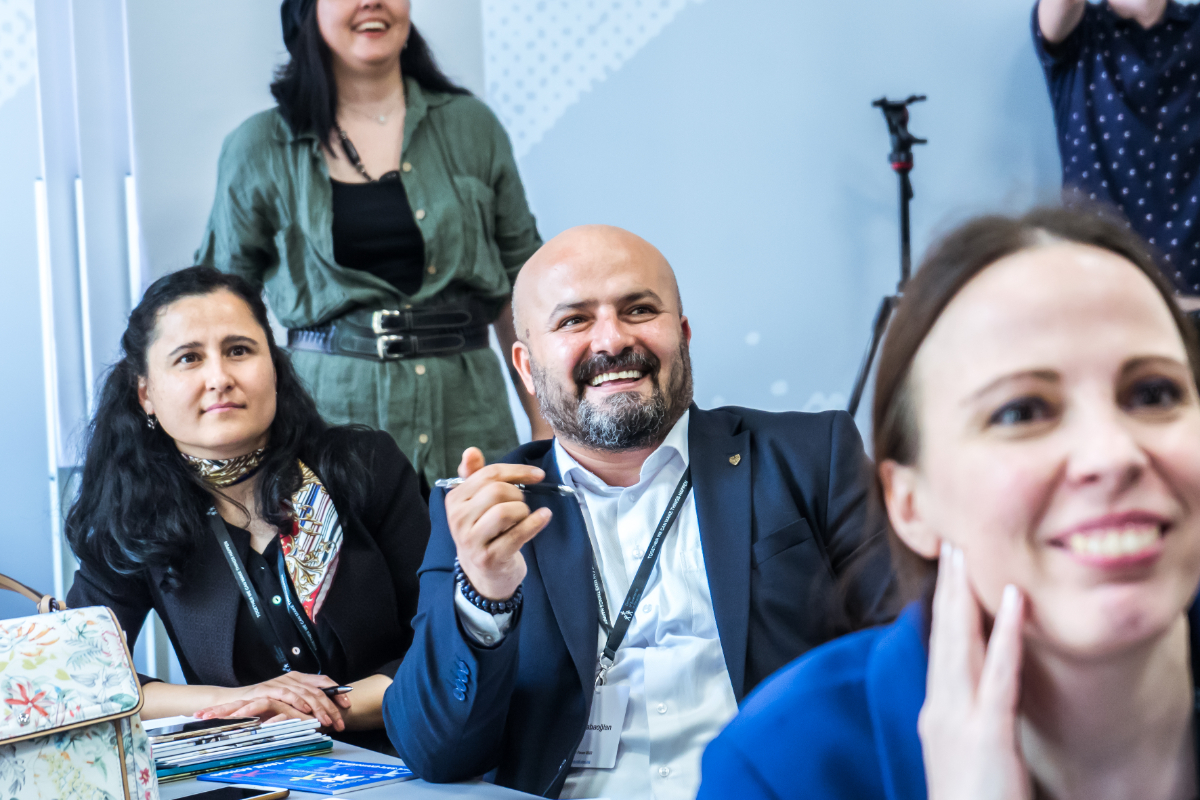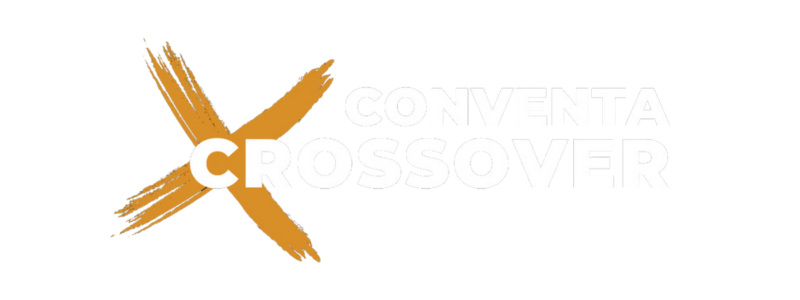Basic Event Information
Date: 23 May – 10 June 2022
Location: Online and CEF, Ljubljana
Organiser: CEF
Client: CEF Coordinators from Albania, Bosnia and Herzegovina, Bulgaria, Croatia, Kosovo, North Macedonia, Moldova, Montenegro, Romania, Serbia, Slovenia, and Turkey
EVENT CATEGORY: CATEGORY B2B
EVENT SUBCATEGORY: Best CSR Event
EVENT FORMAT: HYBRID
Event description and key objectives
This event was intended for the CEF coordinators. They are responsible for individual and institutional capacity development at ministries of finance, central banks, and tax administrations in South East Europe (SEE).
They joined us both online and at a face-to-face gathering in Ljubljana to learn about the importance of knowledge management and what it takes to become a learning organization. We also presented our own methodology of becoming a learning organization.
We designed the event together with an international expert, Vincent Ribiere from IKI-SEA as pirate-themed training. The participants wholeheartedly embraced the idea and followed the organizing team in transforming into the pirates of the SEE.
They went on a knowledge quest and explored the challenges institutions face through six missions representing six building blocks in the CEF methodology. The idea was to inspire them to think and reflect on their own organizational knowledge-sharing practices.
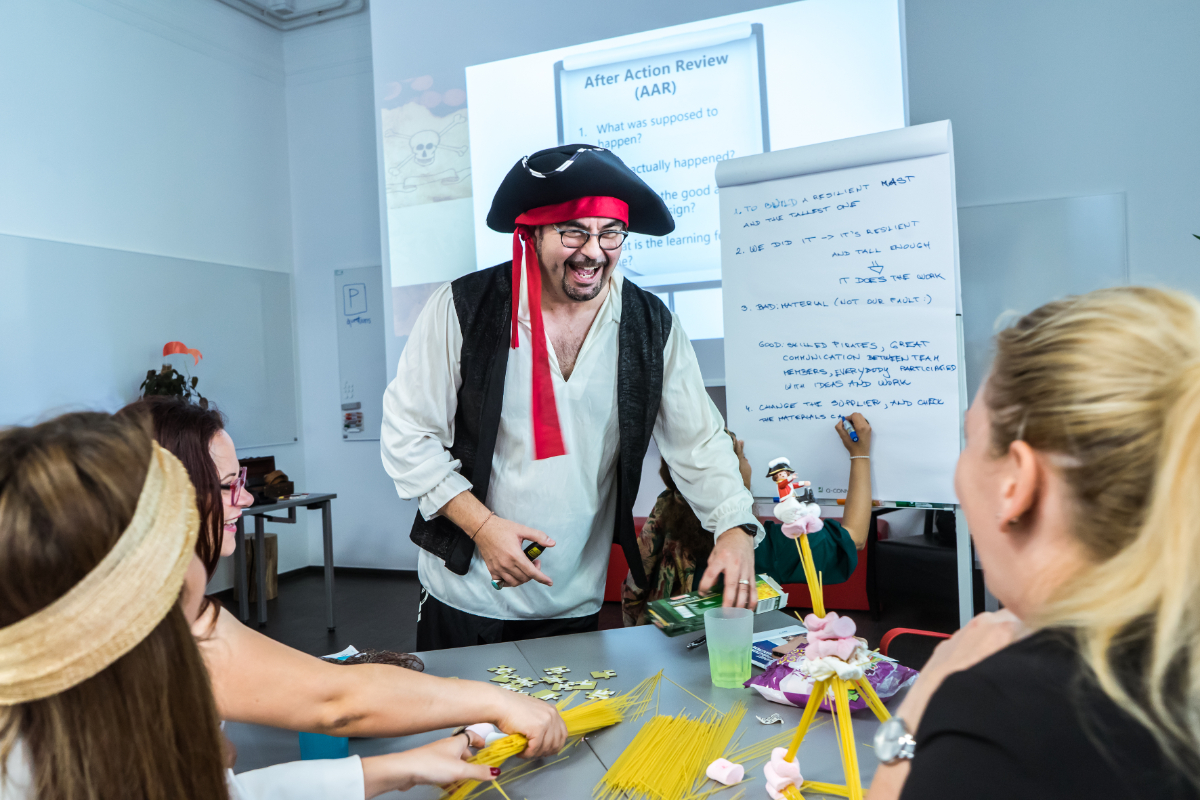
Key challenges
Public sector organizations have traditionally been structured in silos. In such an environment, information and knowledge are hardly ever shared across different units and organizational levels.
The ability to share knowledge as well as how to do it is therefore not something that can be taken for granted. It requires a change of attitude and behavior of the staff. These efforts involve building and reinforcing an organizational culture that promotes open-minded questioning, thoughtful listening, consideration of multiple options, and acceptance of opposing views. Getting an organization’s culture ‘right’ for knowledge management is typically the most important and yet often the most difficult challenge.
When preparing the event, we considered above mentioned challenges and how to embrace them meaningfully. After thorough thinking and extra preparations, we decided with a bit different approach though we envisaged the possibility for the participants not to be comfortable with it as they could close up, or take away even less than from a more »traditional« event.
Creativity
Details of our pirate-inspired learning journey could be observed in all aspects of the event: in learning activities and games, clothing, classroom décor and arrangement in the shape of knowledge islands, shared learning materials, pirate-themed props, costume accessories, use of pirate language (e.g., Ahoy, God’s speed), food, water, and other treats served on the occasion. All these elements created an engaging learning atmosphere.
We have demonstrated the impact that fun and gamification can have on learning effectiveness, memory retention, and inspiring action after the event. We involved participants in playing introductory games, building a mast with spaghetti, marshmallows, and figurines, identifying their institutional challenges through various analyses, and searching for knowledge-sharing partners through a game called Message in a Bottle.
We ensured that CEF coordinators felt at ease, so the likelihood of being willing to experiment and try new things increased.
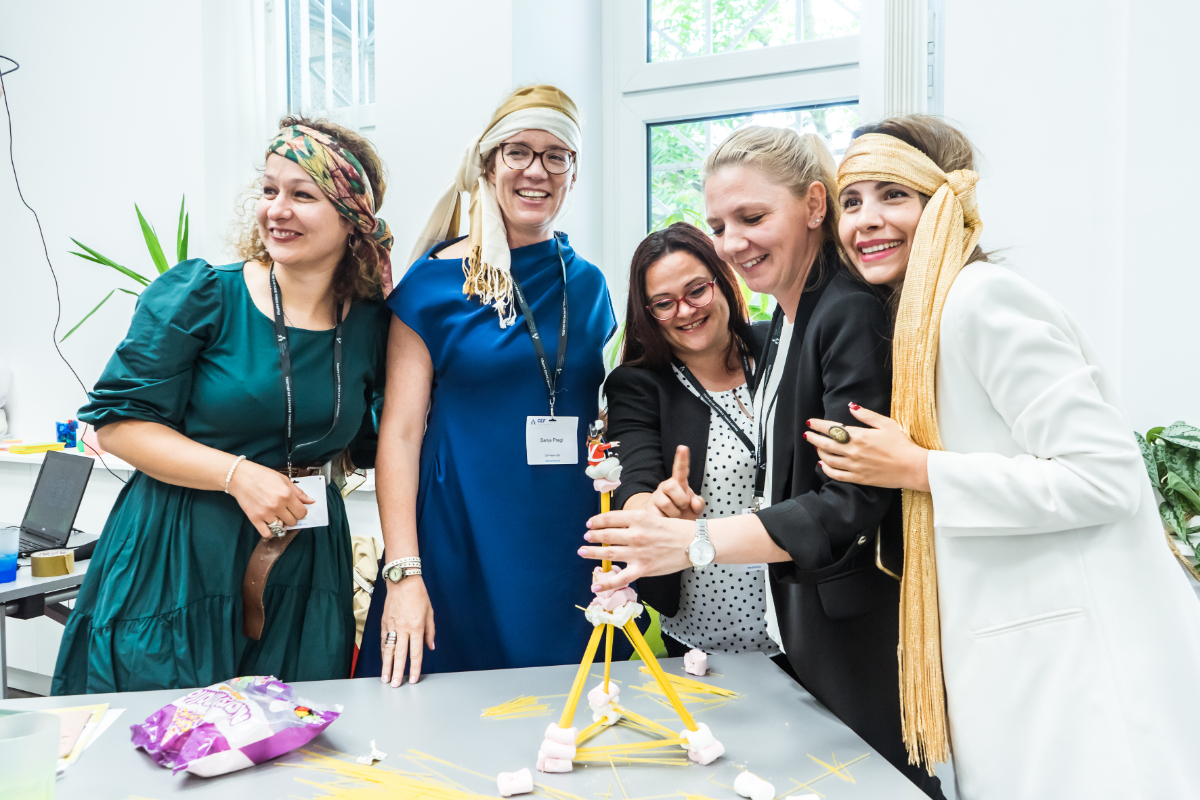
Innovation
The design of our pirate-themed workshop followed principles that people learn more when we: connect learning to real life (identified real-life challenges), incorporate variety and creativity (costumes and requisites, live animals), encourage movement (knowledge islands), encourage interaction (work groups, ‘rum’ breaks), host some friendly competitions (knowledge mission pitches), introduce elements of fun (pirate words).
We used our architecture to support the learning process. The “knowledge islands” were spread across the entire CEF premises. CEF staff showed innovation in presenting CEF methodology. For example, they brought their pet lizard to demonstrate the need for courage in communication.
The used methods are not common in learning events for public officials. However, the participants testified they are highly relevant and beneficial. They also asserted these innovative approaches inspire them to look at solving their daily task and projects from a new perspective.
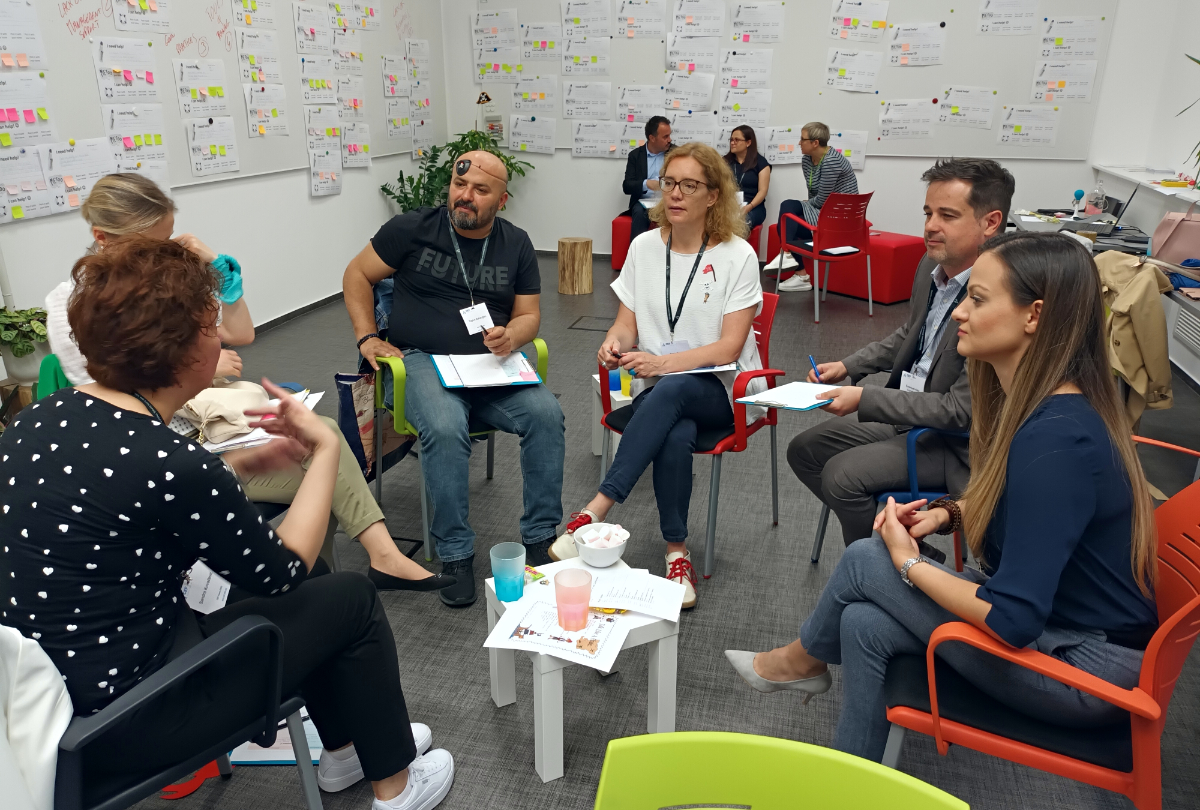
Execution
The event included several group work sessions that generated high enthusiasm and interest in addressed topics. These contributed to the effective sharing of experiences and reaffirming knowledge matters. Such participant-centered activities induce participants’ thinking, analysis, pro and con discussion with the aim to generate possible solutions to a given challenge. They also serve as pace-changers that stimulate participants’ interest, attention, and teamwork.
The CEF coordinators acknowledged this event was a transformative learning experience. It went beyond simply acquiring new knowledge. It dived into the way the CEF Coordinators evaluated their past ideas and understanding, and are now shifting their views as they have obtained new information.
The event also served as a unique networking opportunity. Several participants pointed out the importance of creating connections with colleagues from different countries and the ability to reach out to them also after the event.
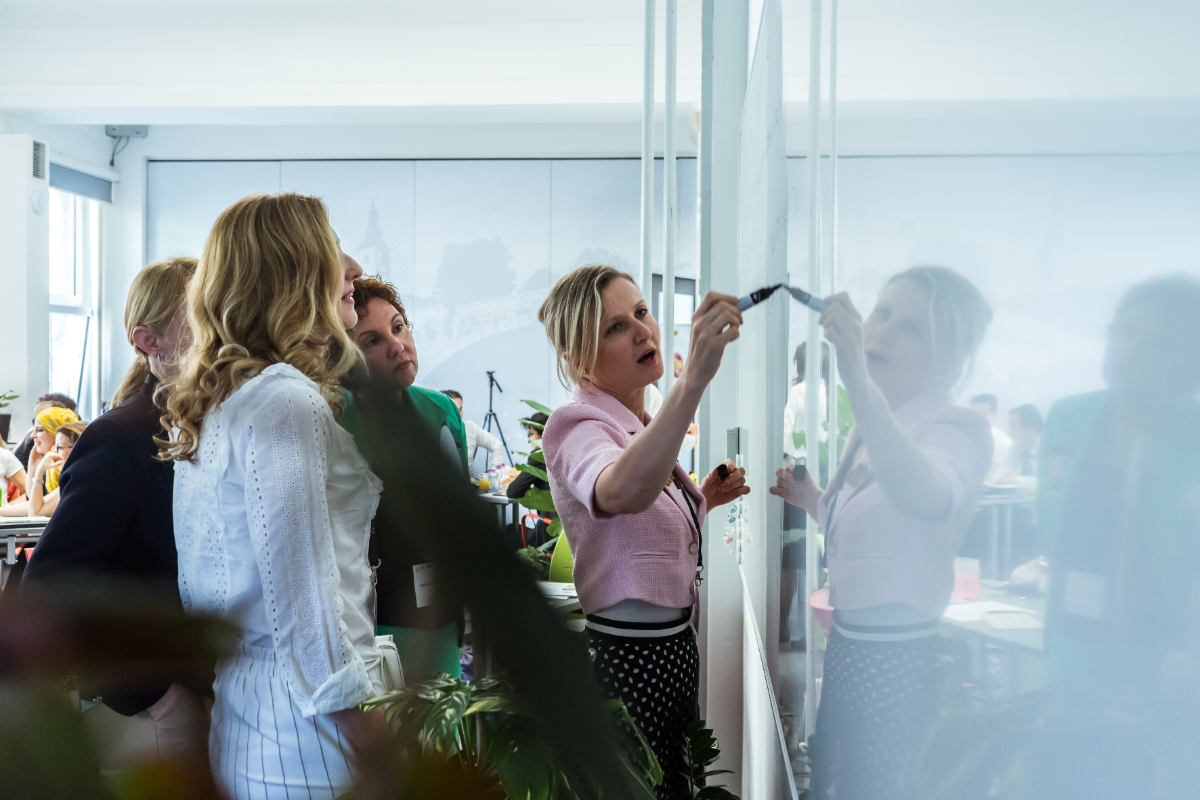
Measurable results
We conducted an online survey and received 24 responses (100 percent response rate). Scores were allocated on a scale of 1 (poor or strongly disagree) to 5 (good or strongly agree).
The results show that the CEF coordinators were very much satisfied with the event (4.9), and it met their expectations (4.8). They very much liked the learning approach (4.7) which was very interactive (4.9). The content was properly organized and easy to follow (4.8). CEF coordinators had an opportunity to interact with peers (5.0), and CEF staff supported their learning process (4.9). The event was well organized (4.9).
Their key takeaways are: networking and peer support are very helpful in achieving goals (internally and externally); knowledge sharing is the most important value; learning organizational culture is a long process, but very useful. It is important to have teamwork, effective and efficient use of resources. They got motivated to share their knowledge and inspire colleagues at work.
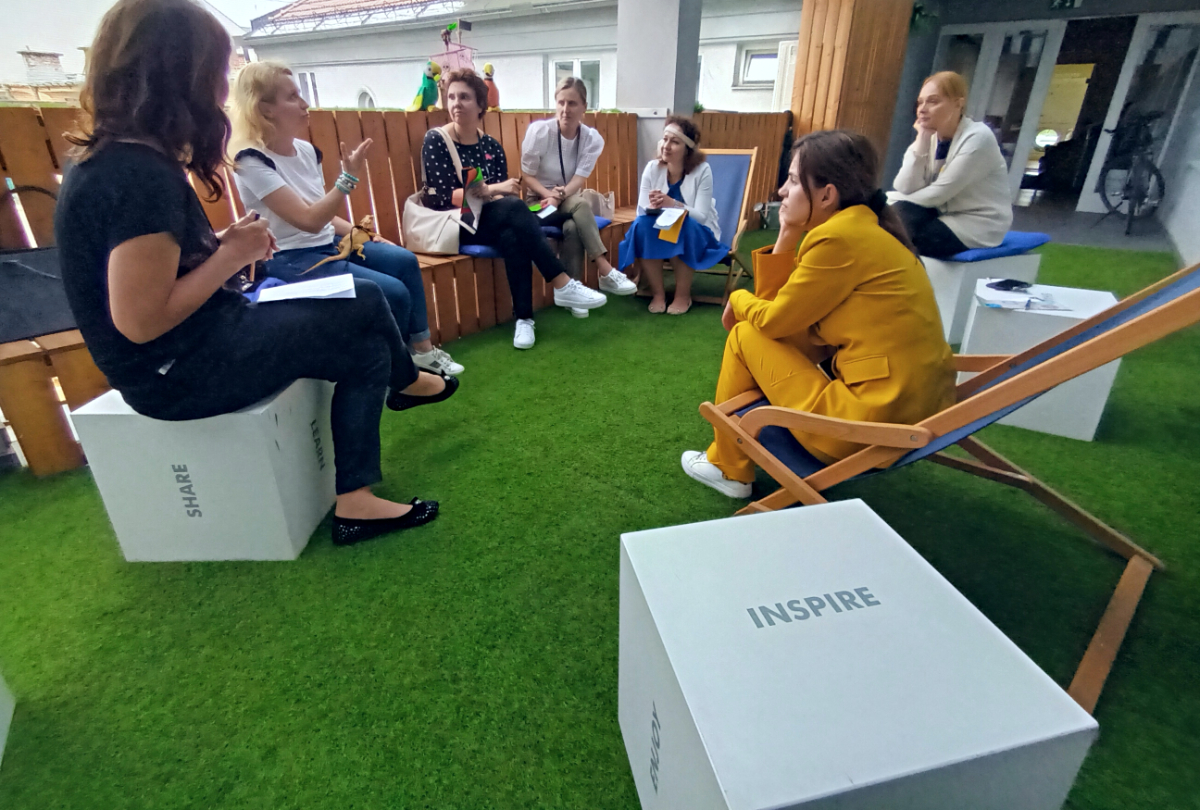
Communication
We used various communication channels prior, during and after the event. We published the events outline on CEF website. For this event, we invited participants via email, and also contacted them directly via phone.
We published two blog posts. The first, Knowledge is the Strongest Asset of Organizations and Teams was written by CEF colleagues Ajda Turk and Ivana Angelova. The second, To Which Extent is Your Institution Functioning as a Learning Organization? was written by an international expert, Vincent Ribiere.
During the online part of the event, we used CEF Online Learning Campus (OLC). There, we published all learning resources, online meeting recordings, and other relevant information. We promoted the event via CEF social media channels (Facebook, Instagram, and LinkedIn), and communicated directly with participants via email and LinkedIn closed group. After the event, we published photos and used presentations on OLC, and contacted participants on various occasions.
Communication channels:
- Conventa Promotional video
- CEF event website
- Turk A., Angelova I. (2022). CEF blog: Knowledge is the Strongest Asset of Organizations and Teams
- Ribiere V. (2022). CEF blog: To Which Extent is Your Institution Functioning as a Learning Organization?
- Social media coverage (Facebook, Instagram post and stories, LinkedIn)
- Photos: Reception, June 7, 2022
- Photos: ToT Knowledge Management in Public Institutions, June 8-10, 2022
- CEF Introductory meeting presentation
- Vincent Ribiere, Why and How to become a Learning Organisation?
- CEF Consultation meeting presentation
- ToT Knowledge Management in Public Institutions – presentation
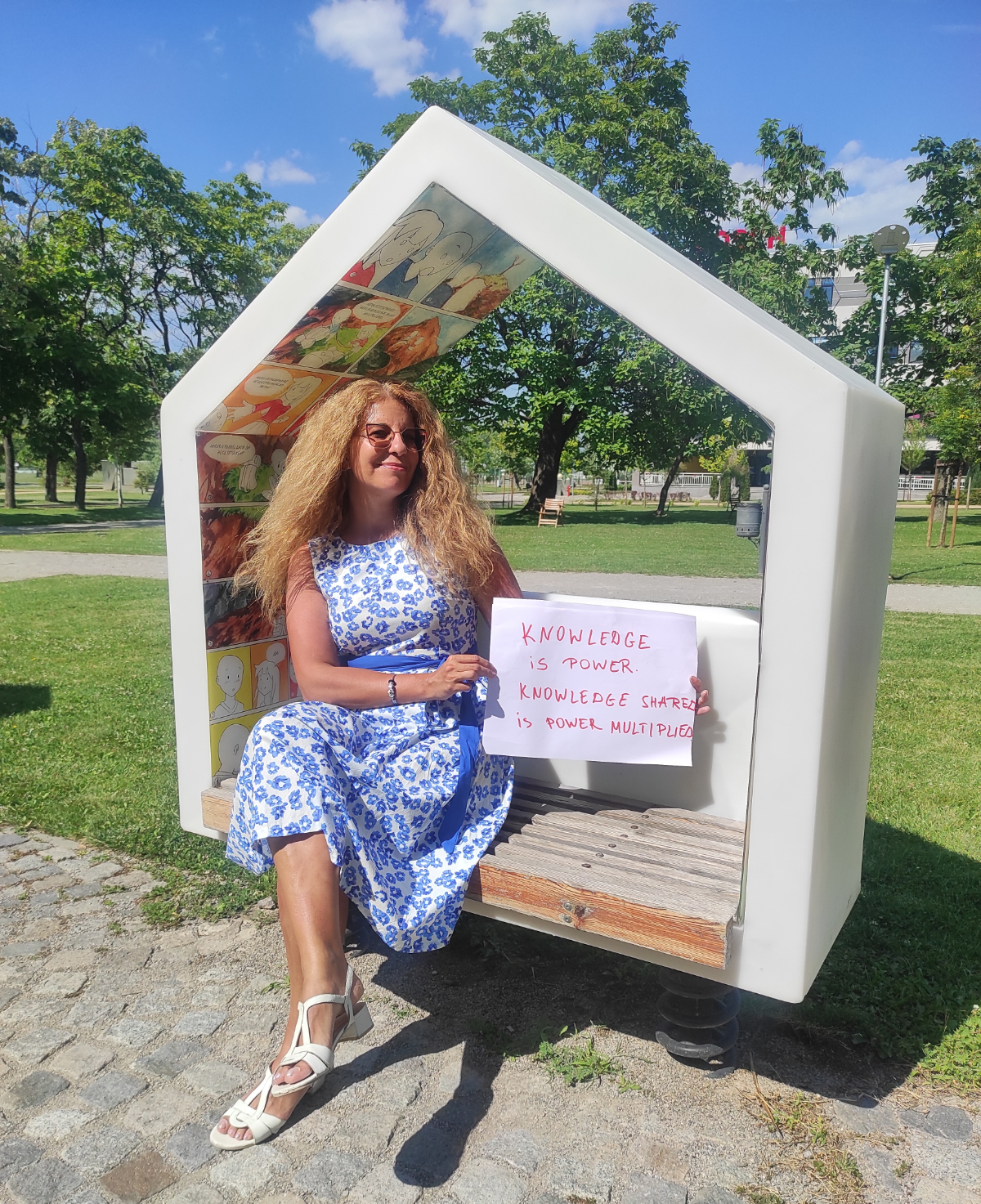
The use of sustainable practices
We provided most of the learning materials online. We organized group transfers to the airport when possible. Most of pirate costumes and requisites used during the event were gathered from items the CEF staff members already had at home. We bought stickers and other artistic materials that were used for prototypes during knowledge mission presentations that can be reused on other occasions.
Other sustainable practices part of the CEF’s standard processes are: no plastic bottles, plenty of plants in the lobby and classrooms, furniture that can be moved around and used for different purposes, fresh fruit available for participants and staff, recyclable coffee/tea cups for participants, ceramic ones for the staff, and using stairs instead of an elevator.
This learning initiative was supported by the Ministry of Finance of the Republic of Slovenia and Banka Slovenije, who are both CEF’s long-term partners that support the sustainability of the CEF learning and knowledge sharing program.
